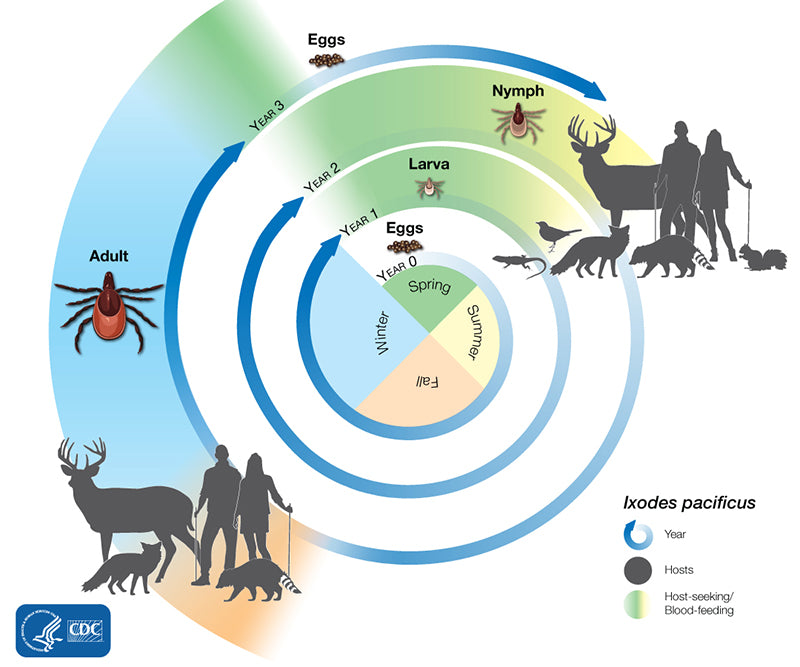
Q&A about ticks: Ticks, the imperishable parasites
Share
Questions and Answers about ticks: Ticks, the imperishable parasites

What do we know about ticks?
We know that these are spider-like parasites with their 8 legs, and living by feeding on the blood of mammals, birds, and sometimes reptiles and amphibians. They are blood-sucking parasites that can spread many diseases by eating your blood. How? It’s simple. Ticks transmit pathogens that cause disease through the process of feeding. The tick inserts its feeding tube to the host’s skin, and ticks can secrete small amounts of saliva with anesthetic properties so that the animal or person can’t feel that the tick has attached itself. A tick will suck the blood slowly for several days, and if the host has a bloodborne infection, the tick will ingest the pathogens with the blood. Small amounts of saliva from the tick may also enter the skin of the host animal during the feeding process and if the tick contains a pathogen, the organism may be transmitted to the host animal in this way.[1]
But how they find their hosts?
Good question! They have Haller Organs. With the help of these “sensors” they can detect mammals’, birds’ breath and body odors, or sense body heat, moisture, and vibrations. Some species of ticks can sense shadow also.
Okay, we know how they find their hosts and how they transmit pathogens, what about diseases they can cause?
We hear about Lyme disease and Babesia all the time, but there are lot more illnesses that they can transmit, and the worst thing is the “first stage symptoms” are more or less the same.
Depending on this, how do we know if we have Lyme disease or the Powassan virus?
After you removed the tick, you must be aware of the symptoms! When you notice fever, fatigue, dizziness, head and stomachache or vomiting…, or something which is not normal, go to see your doctor! If they detect your illness in time, they can help you with medicals and therapies, and you can prevent yourself from the subsequent long-term treatments and possible complications with more serious outcomes.
If ticks are so dangerous, why don’t we try to eradicate them?
We ask this question a lot, but there is an easy answer for this: these parasites are suspected from the early Antiquity and from that time we always fight with them. They are strong and nearly imperishable. I am sure, that everybody has met with ticks in their lives at least once however, they used some chemicals, or bio repellents, or something preventive things against them. This shows that there is no 100% solution against them because during the centuries they adapt to the circumstances. In addition, with each chemical we use against them we slowly destroy useful beetles, insects, and nature as well.
If you like long walks in the forest, hiking, exploring the “jungle” or just chilling in the park with your family and friends, and having a picnic you must pay attention to ticks! Prevent illnesses, avoid serious complications, and high medical bills!
Your health is important for us, that is why we recommend using Tickless products when you are out in nature. The Tickless product family’s devices work with efficient ultrasonic technology, they are chemical-free, odorless, and safe to use for everyone!
Using Tickless means that you do something to prevent tick bites in a chemical-free way!
Protect your loved ones with Tickless! ❤️
Check out our chemical-free Tickless tick repellent products!
[1] CDC: how ticks can transmit diseases: https://www.cdc.gov/ticks/life_cycle_and_hosts.html#:~:text=Ticks%20transmit%20pathogens%20that%20cause,then%20inserts%20its%20feeding%20tube.
https://www.researchgate.net/publication/328364068_Mites_Ticks_and_Paleoparasitology
